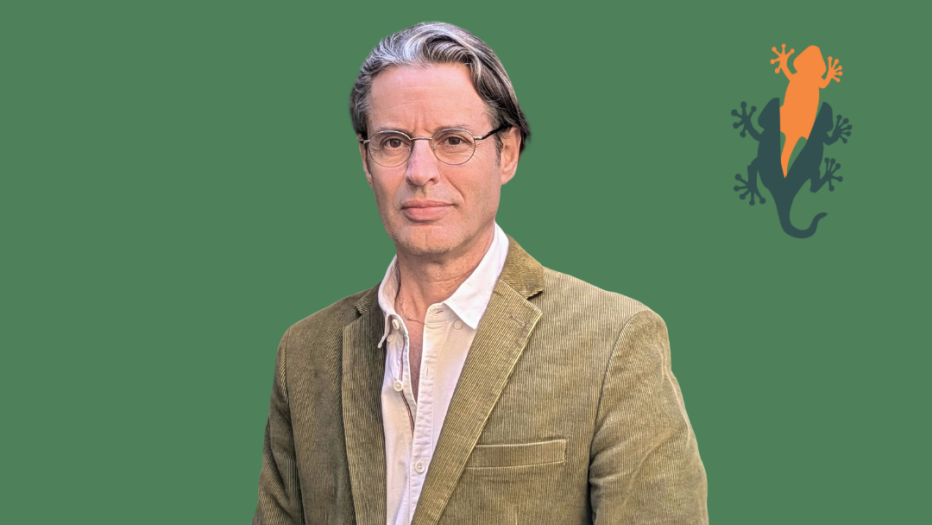
Articulating social and professional dialogue
Antoine Massol [TBS Education 1995]
Antoine has had a rich and eventful career. France's youngest pilot at the age of 17, he became a student pilot in the French Air Force, then joined ENAC. There, he obtained his theoretical airline transport pilot's license and acquired dual skills in air traffic control. After an IS Master's degree at TBS Education and a spell at Astrium, where he discovered the world of space, he became an avionics consultant at Safran Engineering, working on the single-aisle, long-range and A380 programs. Dissatisfied with his professional environment and in search of meaning in work and in life, he explored law, philosophy, theology and even prepared for a cobbler's CAP.
His social commitment intensifies: mission handicap, commission consultative départementale de sécurité et d'accessibilité (CCDSA), association petits frères des Pauvres of which he becomes vice-president for Occitanie, etc. In 2016, he became a union representative at Altran, a world leader in engineering and R&D services, where he was on the front line during the group's merger-acquisition.
Capgemini in 2020. Today, he is interested in the scientific object within the internal research program with a social dimension, Future of People@Work. He synthesizes his professional experience in the responsible innovation project Innov4good. Antoine, a permanent "learner" whose compass seems to be curiosity, encouraged by his taste for freedom, shares his thoughts with us.
How does an avionics consultant become a social innovation researcher?
I've always been intrigued by social dynamics within organizations. How do people and communities interact, in cooperation or conflict, to create and innovate? Why do they so often fail to interact and create without really innovating? Because creating doesn't mean innovating, at least not directly. Creation becomes innovation when it finds its audience, and when that audience recognizes its universality.
It was in seeking to understand these issues that I became interested in the sociology of work. My approach is a dialectical one, combined with a desire to contribute to a more humane, fairer and sustainable working environment. For me, social innovation is the meeting point between dialectical reason and creative desire, and freedom is born of this encounter, a freedom that can be shared to give meaning to life and work. My approach to reason is Hegelian (contradictory movements and the overcoming of these as the driving force of history and thought towards an absolute ideal).
In contrast to German idealism, that of desire took root in me through the communitarian personalist current (primacy of the person and human communities as relational beings participating in the sentient world and spaces for commitment and self-realization). My final-year philosophy teacher introduced me to Louis Lavelle, the spiritualist and personalist metaphysician of value and participation, whose reviews I devoured rather than his (monumental) work, so eager was I to take him in at first glance. Since philosophers have provided science with the conceptual tools to apprehend the human and social condition, I was able to choose my weapons from them.
What is the purpose of your research?
My arrival at the Future of People@Work program is in line with my intellectual approach. The Capgemini Group, like most economic players today, is aware of, if not a player in, the profound transformations taking place in the world of work. Ecological challenges, digitalization and new employee aspirations are forcing companies to rethink their ecosystems. This is where social innovation comes into its own. What attracted me to Altran, which became Capgemini Engineering in April 2021, was its resolve to place people at the heart of its thinking on innovation. The Innov4good research project I'm currently working on is a perfect illustration of this. It aims to demonstrate that taking human, social and societal aspects into account is essential for sustainable and responsible innovation.
So social innovation has something to do with the climate?
Absolutely, social innovation is fundamental to the fight against climate change. It takes into account social aspects in addition to the environmental aspects of value-creation processes. For example, the Social Life Cycle Assessment (Social LCA) measures the social impact of products, services or organizations throughout their life cycle. It is not limited to the carbon footprint, but extends to working conditions, impact on local communities and access to resources. The Social LCA we are working on enables our customers to gain a global vision and identify the levers of action for more sustainable innovation.
"Social innovation is the meeting point between dialectical reason and creative desire, and freedom is born of this encounter, a freedom that offers itself in sharing to give meaning to life and work."
What role does your research project play in Capgemini's offerings?
The Innov4good project is part of the Capgemini Group's sustainable development strategy. The aim is twofold: to develop knowledge and tools to help our clients in their transition to a sustainable economy, and to transform Capgemini Engineering by integrating responsible innovation into the practices of our teams. Research is carried out into the acceptability of technologies, the social impact of organizations (turn-over, burn-out; versus fair treatment, social benefits...), maturity models (products, services and processes), the measurement of mixed value (economic, social and environmental), green skills references... This work enables us to develop tools (analysis grids, methodologies, etc.) to support our clients in their transformation.
But Innov4good is also a learning process for Capgemini Engineering. By working on these topics, we are developing in-house expertise and spreading a culture of responsible innovation among our teams.
What's your role?
My role is one of sharing experience and best practice between consultants and researchers. I learn social science research methods, and in return contribute my operational experience, with all the hindsight of my years in the business. In this way, I contribute to the scientific approach of the projects, under the benevolent supervision of the research teams, all of whom hold doctorates in the social sciences.
As a consultant who had branched out into full-time trade union activity, but too aware of its limitations and convinced that I could serve the working community far better than through the employee representative bodies (IRP), I abandoned the idea of standing for re-election and imagined other levers of action. Like the stonecutter who, roughing out the surface to be chiselled, moves his chisel to the precise spot where the material will split, I had to find another angle of attack to remain consistent with my professional objectives.
I had just played an active part in transforming Altran's IRP in preparation for their probable merger with Capgemini's by 2027. But how to ensure the collective expression of the working community without the full legitimacy of the players charged with representing employees vis-à-vis the employer?
We know that this legitimacy is weak in France, especially in the Syntec branch and among executives. In our case, I estimate the unionization rate at around 2% (it's 5% at Syntec level and 10% at national level). What's more, only 29% of staff voted in our last professional elections. So how can we claim to be useful, effective and above all credible in social dialogue when our elected or appointed mandate is so unrepresentative? This is one of the basic obstacles I intend to remove, using the scientific method.
"Social Life Cycle Assessment (Social LCA) is not limited to the carbon footprint but extends to working conditions, impact on local communities and access to resources."
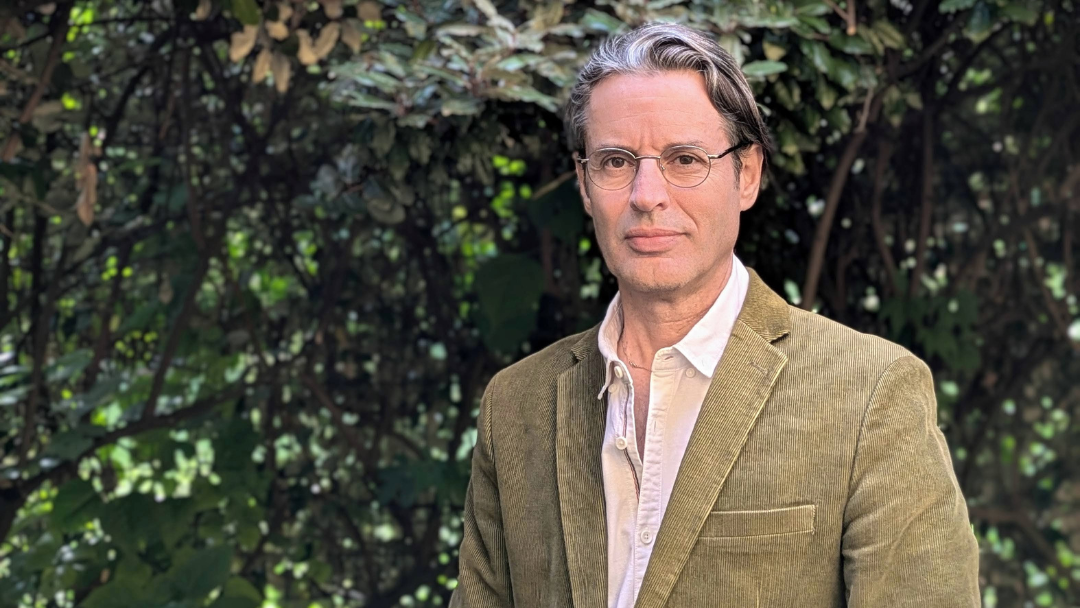
Can you tell us more about your research?
Traditionally, social dialogue takes place mainly at the level of collective bargaining and IRPs. This is a vertical, indirect and structured form of participation, governed by law, which covers important issues such as wages, working conditions, work organization, etc. It is complemented by professional dialogue. On the other hand, this is horizontal participation, direct but with more flexible modalities, without the intervention of the IRP, which takes place on a day-to-day basis between managers and team members.
It concerns more operational, more concrete issues, linked to the performance of tasks. Although it is based on the right to direct and collective expression introduced in the 80s by the Auroux laws, this right has evolved little. We were just coming out of the "Trente Glorieuses", when economic growth began to slow down and social relations became strained, due in particular to an outdated Fordist industrial model. The introduction of professional dialogue, inspired by the quality circles of Toyotism, was proposed, and social dialogue was considerably strengthened.
"Responsible innovation, to be sustainable, must be based on an open, balanced and constructive dialogue between all stakeholders."
We know that the right balance between social dialogue and professional dialogue guarantees the health of the company: it promotes the quality of work, products and services, develops collective intelligence and stimulates innovation, calms the social climate, reinforces trust, cooperation and cohesion. We are thus convinced that responsible innovation, to be sustainable, must be based on open, balanced and constructive dialogue between all stakeholders.
The problem is that these two levels of dialogue often remain compartmentalized, whereas they should feed into each other. The low legitimacy of trade unions appears to be an objective cause, but other more or less related reasons remain to be investigated.
The rapid development of communities of practice, driven by generations Y and Z, which employers are trying to organize and deploy as innovation networks, is already a substantial response to the challenges of professional dialogue. The resources mobilized in this respect are indicative of a reformist drive towards more humane, participative, inclusive and agile managerial practices, supported by collaborative technological solutions on increasingly powerful and well-equipped intranets.
As for social dialogue, will the unions agree to combine it with a professional dialogue that is undergoing a complete transformation? To do so, they would have to stop fearing that the latter would be used by management to circumvent their prerogatives in defending collective and individual interests. They would also have to overcome the culture of compromise in the practice of collective bargaining.
As long as stakeholders limit themselves to the power game, it's the balance of power that dictates negotiation, rarely social innovation. But we all know how the balance of power works in an unbalanced relationship. And in this game of master and slave (cf. Hegel, Phenomenology of Spirit), the employer is not to be outdone, and has every right to be magnanimous.
This is where my research begins.
Among young people's expectations of the company, the quest for meaning has become strong. What does this inspire in you?
This is a very trendy question you're asking me. I'm going to focus my answer on the crisis of desire, as this is one of the keys to understanding the loss of meaning of generations Y and Z. Desire, unlike need, is not limited. It is a profound aspiration of the human being with an aim that transcends him or her. Yet consumer society has transformed desire into an immediate need that is constantly renewed, draining it of all depth and spiritual dimension. Moreover, by valuing the individual to the detriment of the collective, it has led to the fragmentation of this desire. Each individual seeks to satisfy his or her own impulses, without concern for the common good.
Faced with a crisis of values and existential disorientation, young people find it difficult to give meaning to their desires and to prioritize them. The combination of current crises only amplifies this loss of meaning. This is where I turn to community-based personalist philosophy. Following in the footsteps of Louis Lavelle and his metaphysical approach, and although developed between the wars, Emmanuel Mounier's existentialist approach offers, in my view, a relevant framework for analyzing the desire of the younger generation.
Faced with the prevailing nihilism and the rise of the authoritarian regimes of the 1930s, European youth oscillated between withdrawal and irrational activism. For them, the quest for meaning became a vital issue, commensurate with the humanitarian catastrophes they were about to suffer a second time. Mounier called for a "personalist and communitarian revolution", a third way between individualistic liberalism and authoritarian collectivism. This revolution aimed to reconcile personal development with the construction of a more just society, based on the pursuit of the common good and recognition of the dignity of the human person.
Echoing the contemporary aspirations of young people for meaningful, value-laden work, and for more horizontal, democratic modes of governance that enable them to feel useful and involved, Mounier's thinking is invaluable. It invites us to rethink the company as a place of personal fulfillment, creativity and cooperation, and not simply as a means of production and profit. To do this, we need to reconcile the economic with the spiritual, and combine the quest for efficiency and the satisfaction of material needs with the human dimension of work.
"We need to reconcile the economic and the spiritual, to combine the quest for efficiency and the satisfaction of material needs with the human dimension of work."
To conclude?
Has Industry 4.0 run its course? Embracing intelligent technologies such as artificial intelligence (AI), cloud connectivity, Big Data, augmented reality, cybersecurity, the Internet of Things (IoT), digital twins, additive manufacturing... the fourth industrial revolution has focused on efficiency and productivity, at the risk of forgetting the human element. Combined with Lean management, also inspired by Toyotism, which focuses on the elimination of non-value-added activities, materialistic drifts and the loss of meaning at work have worsened. A new Chaplin-style "modern age" was just around the corner. The program
Future of People@Work is part of this profound transformation of the world of work, by examining the transition to Industry 5.0. This extension of Industry 4.0 envisages putting people back at the heart of the technologies deployed within them, to create a more harmonious collaboration between man and machine: a machine at the service of man, rather than the other way round.
"Create a more harmonious collaboration between man and machine: a machine at the service of man, rather than the other way round."
This paradigm shift calls for a rethinking of social dialogue and trade union action, going beyond the stereotyped framework of collective bargaining and IRPs, in line with the emergence of communities of practice and innovation networks which, supported by new information technologies, pave the way for a more transparent, richer and more inclusive professional dialogue. The key to truly sustainable and responsible innovation lies in the successful articulation of these two levels of participation, reconciling economic imperatives with employee well-being and the pursuit of the common good.
Could this new business model, championed by the Capgemini Group, deliver on the promise of personal fulfillment, creativity and cooperation within a finally democratized form of governance? It's a question of moving from the asymmetry of the established balance of power to the symmetry of integrated dialogue, articulated horizontally and vertically, where everyone can unleash their potential and contribute to collective success. The democratic company, freed from the shackles of the past, is the horizon for a more humane, fairer and more sustainable world of work.
Interview by Anne Lafont (TBS Education 1988)




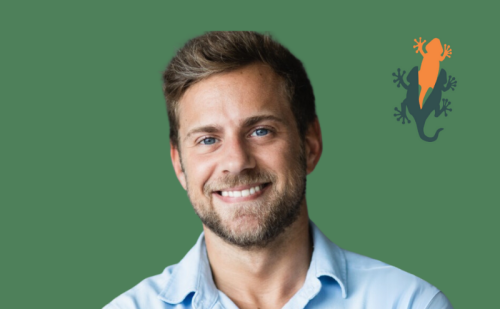
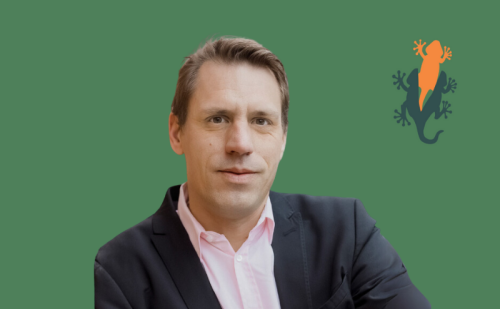
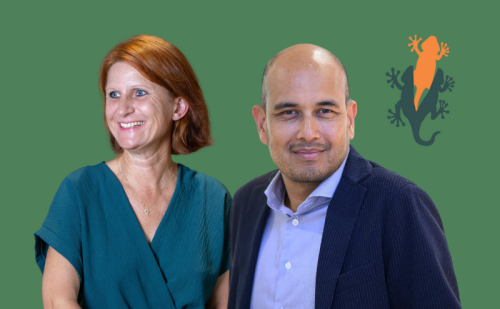
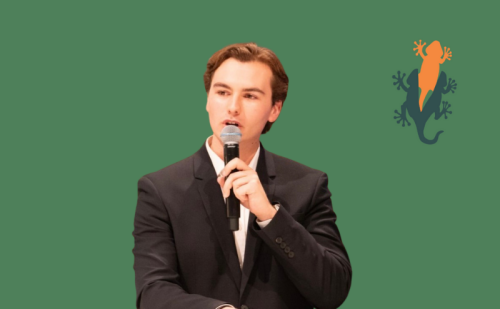
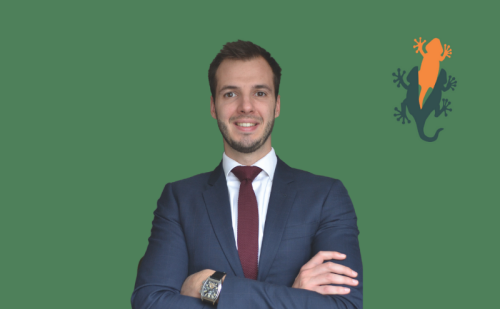
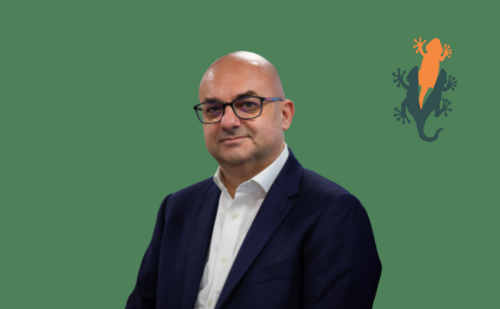

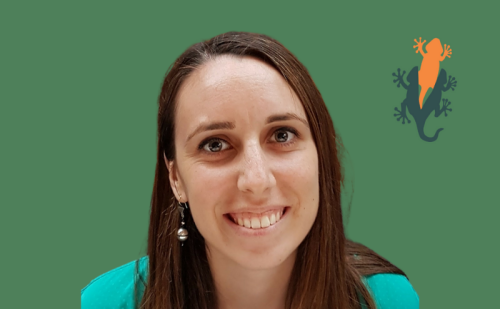
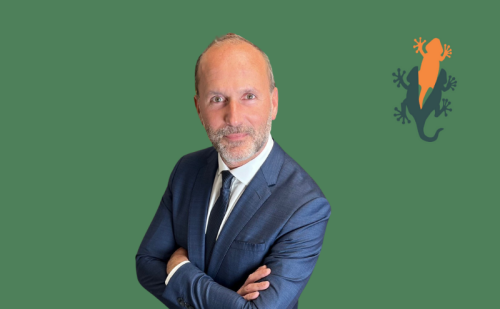


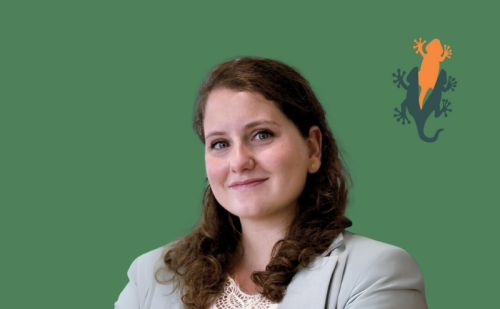


No comment
Log in to post comment. Log in.